- News
- Reviews
- Bikes
- Accessories
- Accessories - misc
- Computer mounts
- Bags
- Bar ends
- Bike bags & cases
- Bottle cages
- Bottles
- Cameras
- Car racks
- Child seats
- Computers
- Glasses
- GPS units
- Helmets
- Lights - front
- Lights - rear
- Lights - sets
- Locks
- Mirrors
- Mudguards
- Racks
- Pumps & CO2 inflators
- Puncture kits
- Reflectives
- Smart watches
- Stands and racks
- Trailers
- Clothing
- Components
- Bar tape & grips
- Bottom brackets
- Brake & gear cables
- Brake & STI levers
- Brake pads & spares
- Brakes
- Cassettes & freewheels
- Chains
- Chainsets & chainrings
- Derailleurs - front
- Derailleurs - rear
- Forks
- Gear levers & shifters
- Groupsets
- Handlebars & extensions
- Headsets
- Hubs
- Inner tubes
- Pedals
- Quick releases & skewers
- Saddles
- Seatposts
- Stems
- Wheels
- Tyres
- Health, fitness and nutrition
- Tools and workshop
- Miscellaneous
- Cross country mountain bikes
- Tubeless valves
- Buyers Guides
- Features
- Forum
- Recommends
- Podcast
review
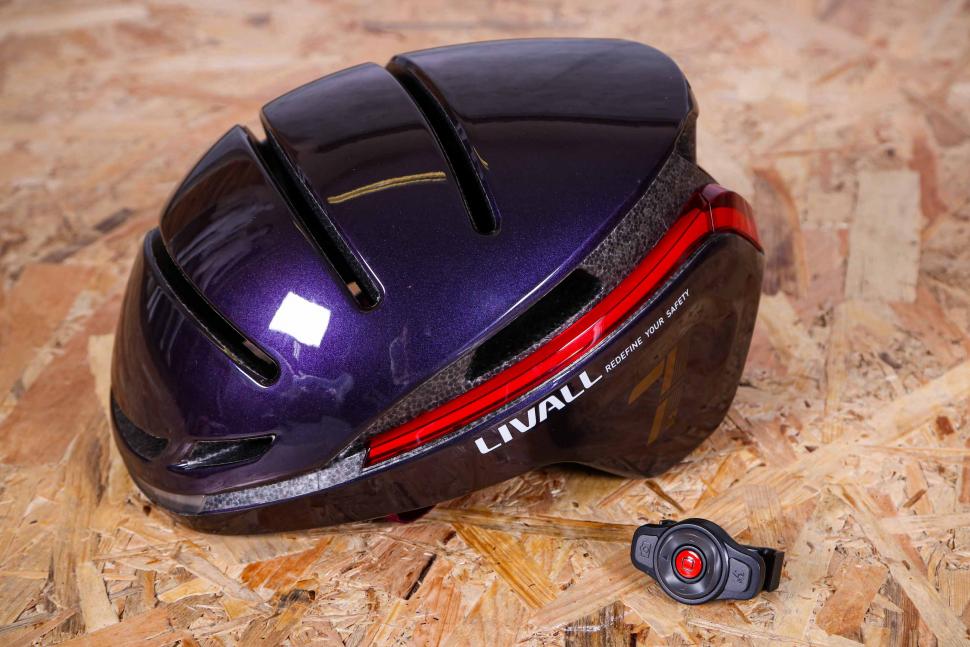 2021 LIVALL Evo 21 cycle helmet.jpg
2021 LIVALL Evo 21 cycle helmet.jpg£99.99
VERDICT:
Niche, but the lighting sytem is clever and it works well as helmet – as long as it fits you
Distinctive lighting at night
Indicator design is quite clever
SOS Alert works well
Lots of colours available
Not quite bright enough for daytime
Quite a rounded fit
Can get a little warm
Handlebar button doesn't light up
Weight:
343g
Contact:
At road.cc every product is thoroughly tested for as long as it takes to get a proper insight into how well it works. Our reviewers are experienced cyclists that we trust to be objective. While we strive to ensure that opinions expressed are backed up by facts, reviews are by their nature an informed opinion, not a definitive verdict. We don't intentionally try to break anything (except locks) but we do try to look for weak points in any design. The overall score is not just an average of the other scores: it reflects both a product's function and value – with value determined by how a product compares with items of similar spec, quality, and price.
What the road.cc scores meanGood scores are more common than bad, because fortunately good products are more common than bad.
- Exceptional
- Excellent
- Very Good
- Good
- Quite good
- Average
- Not so good
- Poor
- Bad
- Appalling
The EVO21 is Livall's latest 'smart helmet,' and while it has a few quirks, on the whole I quite like it. The lighting system is all a bit 'Tron Legacy' in a cool way, and things like contacting a friend or family member with its SOS alert are welcome additions. The fit is a little odd though, and it'd be nice to see what you are pressing on the remote in the dark.
Livall is no stranger to helmets that do more than save your bonce. Back in 2019, Ian reviewed the Bling BH60SE and reckoned that, while it was good at being a helmet, the rest – stuff like a Bluetooth speaker to take phone calls or listen to music, and a walkie-talkie system so you can speak to other Livall riders on group rides – were a bit gimmicky. All that also hammered your phone's battery level.
For the EVO21 it has simplified things somewhat, which is definitely for the best.
Does it work as a helmet? Well, yes and no. Helmet fit is a very personal thing due to varied head shapes, but to be fair I rarely have an issue. I haven't counted but I've probably reviewed and bought more helmets in my 12 years with road.cc than most people will wear in a lifetime, and while some have been more comfortable than others, there are few that just haven't fitted.
Unfortunately, the EVO21 is one of those.
It seems to have quite a rounded shape. If I got things snug front and rear it was gappy at the sides, which even with the strap tightened up nicely allowed it to rock a little from side to side. I still wore it on plenty of rides, and at times I didn't notice it, but when you do it can be a bit off-putting.
Adjustment for diameter is possible via a rear wheel on the cradle, and there is some up/down adjustment too – something the Bling BH60SE lacked. There are two sizes, large (58-62cm) and medium (54-58cm). As these things are so personal, try before you buy if you can.
If it fits you then you might be worried about the venting, or lack of it. I was, but it actually works way better than I expected considered how narrow the openings are. The channels inside funnel the air over your head effectively, though.
I rode at my normal road speeds through September and into October, and didn't find it overly warm, although that could change in the summer. If you are using it for urban riding, again you should be fine, while moving at least.
The EVO21 passes the EN 1078:2012+A1:2012 and CPSC 1203 testing standards, plus the overall quality is decent for a £100 helmet.
> 22 of the best cycling helmets for 2021 – plus how to choose the right helmet for you
The outer shell is bonded tightly to the expanded polystyrene main body, and while it doesn't cover the underneath to protect it from accidental damage, there is no noticeable edge between the two.
The techy stuff
The most noticeable difference over a standard helmet is the lighting. The rear lights cover 270°, and via the app (more about that in a bit) you can choose three different patterns. They're honestly quite eye-catching.
Legally you have to have a working front and rear light on your bike, so the helmet is a secondary light, but it works to create a high-up focal point in the dark, even when you're turning your head. They aren't bright enough to have much clout during daylight hours, though.
At the front is another light which either mirrors the strobing pattern of the rear or comes on as a headlight. I couldn't quite detect the pattern of when one switches to the other when riding, to be honest... not that it makes much difference, as it isn't bright enough to light your way even in the pitch black.
>The best 2021 front lights for cycling: Our big beam comparison engine plus how-to-choose guide
When the helmet detects a controlled deceleration, the rear lights turn solid as if they are a brake light.
By way of the included remote on your handlebar (fitted by swapping the rubber band to something that fits the 31.8mm diameter of most bars), you can also turn on the indicators. Press left or right and the red lights go out on the rear of the helmet and an indicator comes on.
The main problem with seatpost mounted indicators, or those found on the back of some helmets, is that they are so close together that from a distance it's difficult to tell which direction is flashing.
Livall has got around this by giving the indicator a chase pattern around the side of the helmet in the direction you're turning, the same as you see on some high-end cars and lorries.
I didn't use the function loads, though. It's pointless in daylight as no driver will be looking out for them, instead expecting a signal from the rider's arm. It's the same in an urban environment under streetlights, as still your hand signals will take precedence.
When I did find it helpful was on dark A-roads, especially if wearing a dark jacket or long sleeve jersey with no reflectives on the arm. Giving the indicator button a tap gave a much more noticeable intention, and should be attention-grabbing to following cars.
It's all a bit niche to be fair, but it is a step in the right direction if indicator lights are ever going to be a thing.
Vic, I've fallen
Next up, there's the EVO21's ability to message a pre-saved contact if it recognises a crash. This obviously relies on it being connected to your phone via the app, and while I never actually crashed while wearing it, simulating crashes in the garden did create a decent amount of success.
These systems are never foolproof anyway. My Garmin watch has texted the missus after I hit a pothole and stopped to check for damage, while my Garmin 530 contacted her when I hit a rough bit of trail on a gravel ride.
The Livall app allows you to record rides using your phone's GPS, and adds various things like a feed for uploading photos from your ride, along with a comment. It's a bit Instagram, really.
The app can also control the settings of the flash patterns, and whether you only want the lights to come on in the dark or all the time. Once I connected the helmet and completed the setup, I never really touched it again.
> 22 best rear bike lights for 2021 – boost your day & night visibility
The light is charged at the rear via a magnetic USB cable. It works well, charging relatively quickly, and gives around 10 hours of battery life. It's not like your standard USB though, so if you're commuting you might need to carry it with you for top ups.
Waterproofing is rated at IPX5, which means the helmet can resist a sustained, low-pressure water jet. The charging port is at the rear, facing down and tucked behind a rubber cover, and I never had any issues with the EVO21 in the rain.
Value
Judging value is a bit tricky, as there aren't a whole lot of helmets with this kind of tech out there. Coros does offer the SafeSound Road Helmet for £104.99, which is just a fiver more than the Livall. It comes with the SOS function and is a similar weight as the EVO21.
It also has a speaker system on the straps (Dave wasn't that impressed with it), but the rear light doesn't offer anywhere near as much illumination.
Conclusion
If I was spending my own money, would I buy the EVO21? No, probably not. I don't really think I'm its target market. I'm a fast-riding roadie (yep, still telling myself that) and after years of riding and commuting I'm not bothered by traffic, controlling much of it by road positioning rather than relying on signals as such.
In fact, I'm not really sure who it is aimed at. It's quite pricey for a commuter light across town, but kind of heavy and clunky for road use. Still, I do believe it is one of the better solutions I've seen to illumination, and the indicators work quite well. If the idea interests you, and the rounded shape fits, then go for it.
Overall, it's a good helmet. It's well made and not overly expensive, especially when you look at some aero helmets without any of the associated tech.
Verdict
Niche, but the lighting sytem is clever and it works well as helmet – as long as it fits you
road.cc test report
Make and model: Livall EVO21 helmet
Size tested: 58cm-62cm
Tell us what the product is for and who it's aimed at. What do the manufacturers say about it? How does that compare to your own feelings about it?
Livall says, "LIVALL EVO21 IS A ROAD BIKE HELMET INSPIRED BY TIME TRIAL AERO HELMETS THAT OPTIMIZE AIR RESISTANCE AND REDUCE PERSPIRATION THROUGH A SYSTEM OF INNER CHANNELS.
"It has a powerful front light, placed at the angle that faces the road while the cyclist is in sprinting position. The rear lights indicate direction and brakes. In the event of an accident, the SOS system, via the user's smartphone, calls emergency services, providing the cyclist's geolocation as well as flashing the helmet lights. Thanks to the LIVALL app the user can connect to a class-leading community of interconnected cyclists."
It performs well as a standard helmet with decent venting and adjustment, plus it passes the relevant testing standards. The tech is a bonus and on the whole it works without being too gimmicky.
Tell us some more about the technical aspects of the product?
270 degree rear lighting
Various flashing modes
Indicators front and rear
Headlight
SOS Alert
Brake light function
Colours: Black, White, Mint, Purple
Rate the product for quality of construction:
8/10
Rate the product for performance:
7/10
Rate the product for durability:
8/10
Rate the product for weight (if applicable)
7/10
It's about 50g heavier than a non-smart helmet of the same price.
Rate the product for comfort (if applicable)
7/10
Would have scored higher if it suited my head shape.
Rate the product for value:
5/10
Tell us how the product performed overall when used for its designed purpose
As a helmet it performs well, providing it fits your skull shape. The airflow is better than I expected.
Tell us what you particularly liked about the product
Lighting and indicators are quite cool.
Tell us what you particularly disliked about the product
It didn't fit my head shape.
How does the price compare to that of similar products in the market, including ones recently tested on road.cc?
There aren't a huge amount of helmets like this in the marketplace, but it is priced similarly to the Coros mentioned in the review.
Did you enjoy using the product? Yes, on the whole
Would you consider buying the product? No, because it doesn't fit my head shape
Would you recommend the product to a friend? Possibly
Use this box to explain your overall score
I debated over whether this should be 3 stars or 3.5 – the lower score being because it didn't really fit my head shape. If it does fit you there is a lot to like here though, as it is a good helmet with tech that's not overly gimmicky. That's why I have given it the benefit of the doubt, and gone for the higher score.
About the tester
Age: 42
I usually ride: This month's test bike My best bike is: B'Twin Ultra CF draped in the latest bling test components
I've been riding for: Over 20 years I ride: Every day I would class myself as: Expert
I regularly do the following types of riding: time trialling, commuting, club rides, sportives, fixed/singlespeed,
Since writing his first bike review for road.cc back in early 2009 senior product reviewer Stu has tested more than a thousand pieces of kit, and hundreds of bikes.
With an HND in mechanical engineering and previous roles as a CNC programmer/machinist, draughtsman and development engineer (working in new product design) Stu understands what it takes to bring a product to market. A mix of that knowledge combined with his love of road and gravel cycling puts him in the ideal position to put the latest kit through its paces.
He first made the switch to road cycling in 1999, primarily for fitness, but it didn’t take long for his competitive side to take over which led to around ten years as a time triallist and some pretty decent results. These days though riding is more about escapism, keeping the weight off and just enjoying the fact that he gets to ride the latest technology as part of his day job.
Latest Comments
- Secret_squirrel 6 min 36 sec ago
Camera's are your only friend when supported by a halfway helpful police force....
- Secret_squirrel 10 min 27 sec ago
Whilst I agree with the sentiment. 8-10 years not driving (3-4 years in chokey + 5.5 after) is hardly a few. Hyperbole doesnt help.
- Secret_squirrel 14 min 9 sec ago
This. Seems like a clear case of Federal interference with the State legislation.
- HoarseMann 17 min 55 sec ago
It was a tongue-in-cheek reference to the regular debates about this subject 'swldxer' used to initiate on this forum 😉!...
- DMR 22 min 9 sec ago
I was lucky enough to buy a Wattbike Atom in late 2019. It was an absolute godsend during the COVID times, and has served me well ever since. I've...
- Aluminium can 1 hour 8 min ago
Mechanical shifters are recharged by eating food as you ride. Just saying....
- brooksby 1 hour 34 min ago
For a typical garage thief, I'd imagine that the ordinary has been sold off for scrap by now…
- brooksby 1 hour 36 min ago
Looks like they just painted a clay mould... The actual frame has been tossed in the bins at their workshop.
- chrisonabike 3 hours 27 min ago
Are they least acceptable when unlicenced or unlicensed though?
- KDee 3 hours 42 min ago
Here in NL a lot of the bike shops use a ceiling mounted hoist to lift bikes rather than workstands. Not surprising, some bikes like the transport...












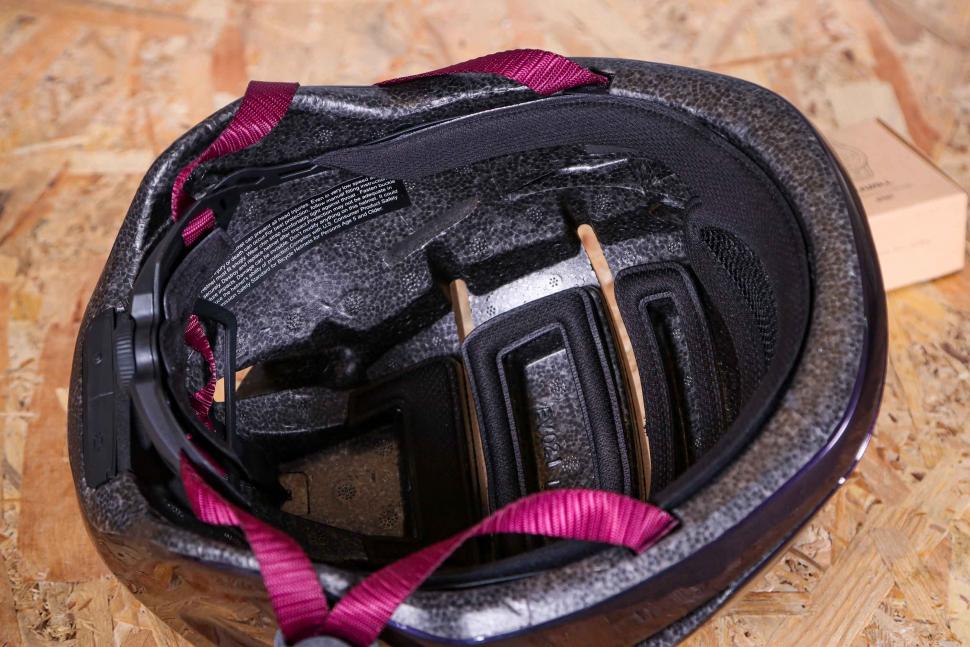
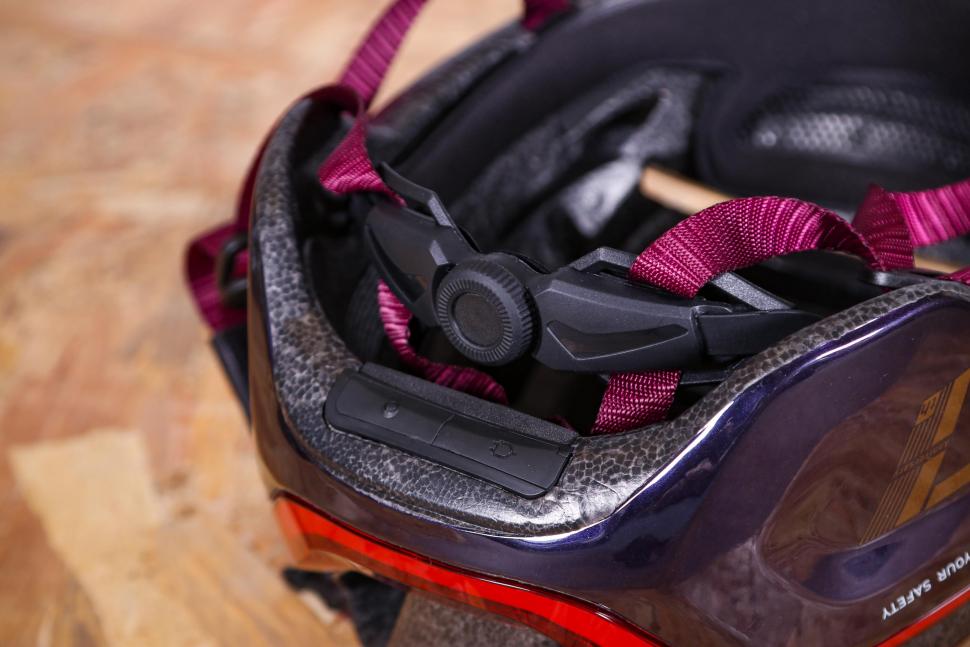





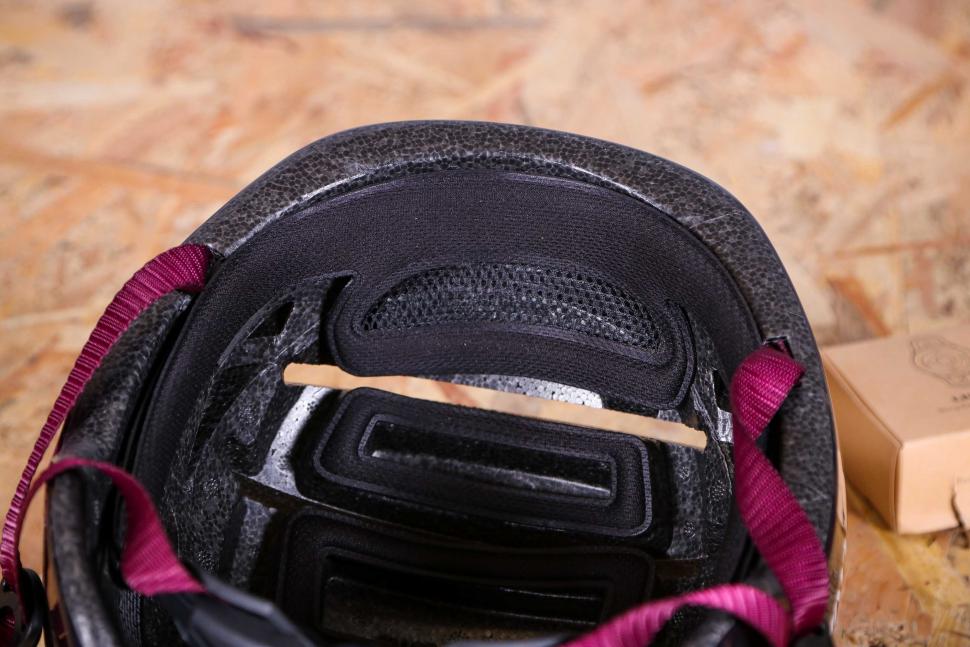
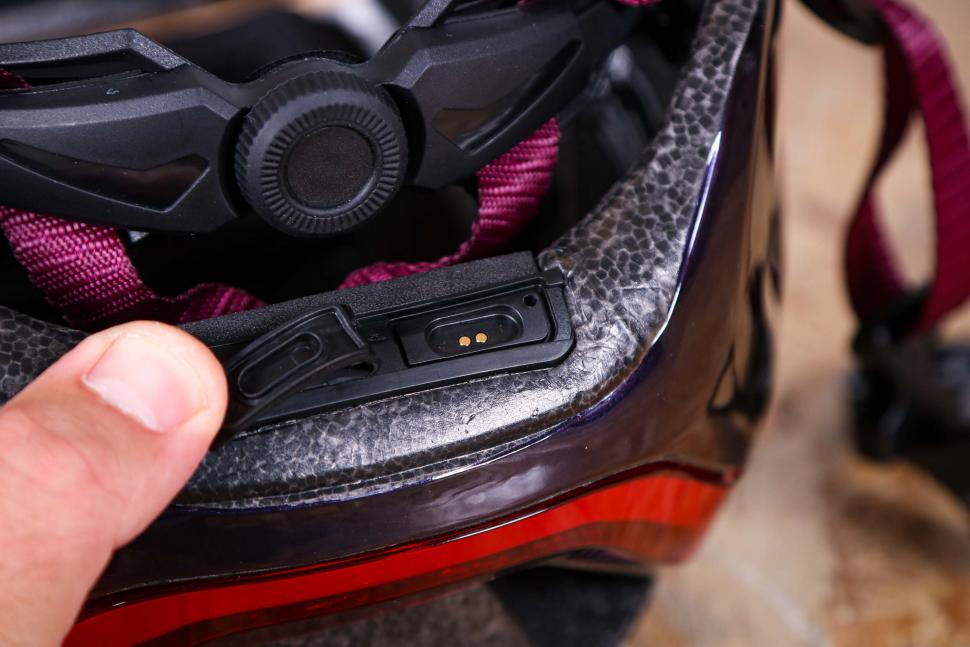
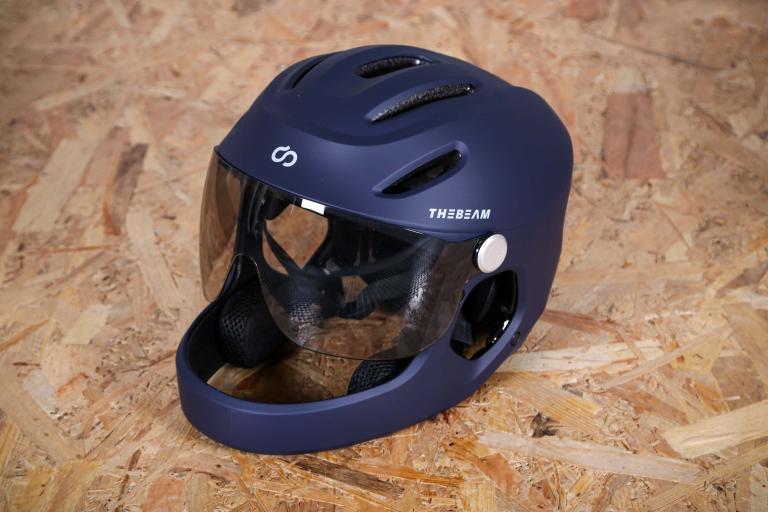
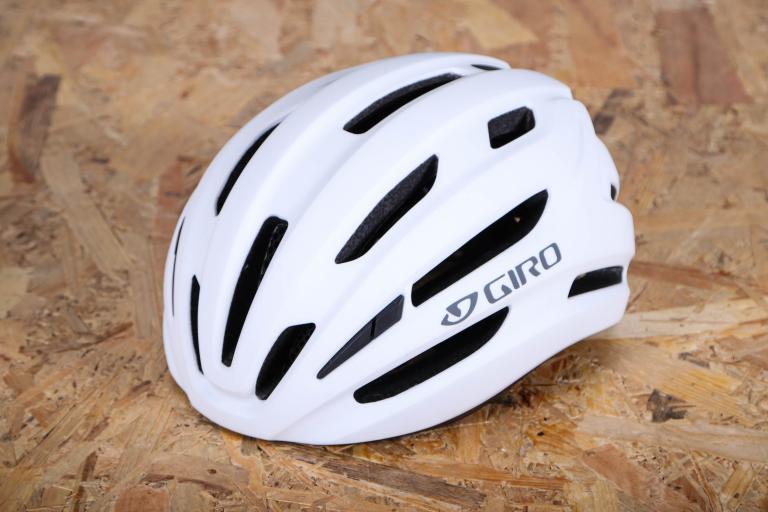
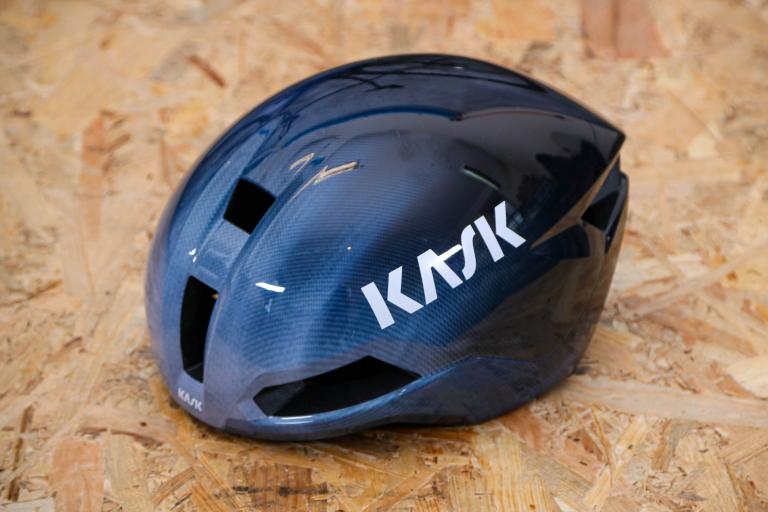
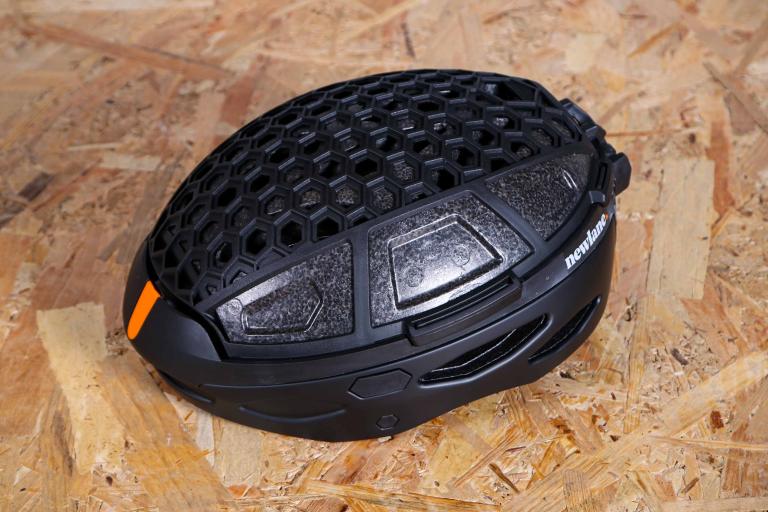
Add new comment
6 comments
I think the idea is great and I really wanted to like this helmet but unfortunately I had a very negative experience with LIVALL. I received a dysfunctional helmet where illumination does not stay on for longer than 10 seconds. Turns out, the company has absolutely no support and does not return any return requests or other support emails which means if you get a defective unit, you are stuck with it. They will also offer you to change your review on Amazon from a negative to a positive for a small amount of money. Based on their Indiegogo campaign reviews, my experience is quite common. So be aware of their business model.
Lower the grade for the rounded shape of the helmet? And this is in a world where the vast majority of helmets are designed for the shape of an Alien (Ridley Scott) head? I've been looking for a helmet for my 61+ round head for 3 years...
The fact that it is not very suitable for your head is not a reason to lower the rating because of the rounded shape.
Sorry - online translator.
I don't know if this is any help to you but every helmet I ever tried was too small for me until I tried the MET MY21 Crossover in XL. It still is not a perfect fit but it is the only one I have tried so far to come close.
What do the other buttons on the remote do?
Shame it requires a proprietary charging cable - especially when it's not doing anything clever or different. It's just charging a battery.
I think the target is likely commuters. I don't think it's that pricey when compared to a basic helmet plus a set of rechargable helmet-mounted lights (an Exposure Link Plus costs £85 by itself, although I know that's on the pricey side too).
I know e-scooters aren't currently legal (outside the official trials) but if they do become (more) widespread, then I think there will be a large market for helmets with lights - most e-scooter's built in lights are about two inches above ground level, which is pretty poor for visibility. Helmets with lights seems to be a more convenient solution than clipping lights to bags, clothes etc.
'I didn't use the function loads, though. It's pointless in daylight as no driver will be looking out for them, instead expecting a signal from the rider's arm. It's the same in an urban environment under streetlights, as still your hand signals will take precedence.'
There's the problem. This sounds (on paper) a perfect solution to those of us with problems indicating with our arms, but nobody will be watching for it.
The reviewer thinks no one will be watching out for it......
Not necessarily the same thing.